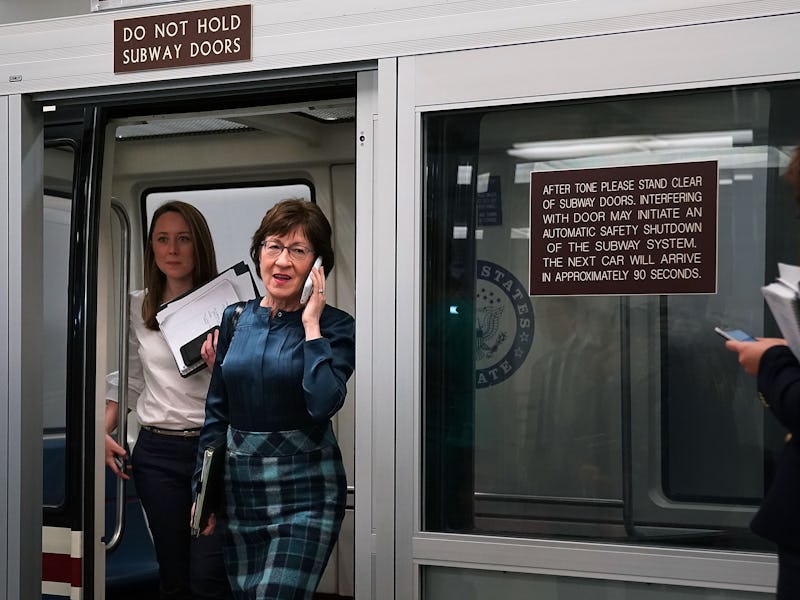Net Neutrality Sees Its First Republican Defender
This jump over the aisle could signal trouble for the GOP.

While citizens, activists and tech giants have been quick to unite to protest the FCC’s plan to kill net neutrality, politicians are noticeably split down party lines on the issue. But Republican Senator Susan Collins broke from her fellow GOP lawmakers Friday to voice her support for a free and open internet.
Collins says that “internet providers must not manage their system in an anti-competitive way that limits consumers’ choices,” reported the Bangor Daily News.
Although Congress doesn’t have a direct say in the FCC’s decision on December 14, Collins’ actions could potentially dishevel the appearance of unity behind Donald Trump and his appointed FCC Commisioner, Ajit Pai. It wouldn’t be the first time that Collins has spurred other Republicans to go against their party majority: the Maine Senator was the first GOP lawmaker to oppose the Obamacare repeal and to oppose putting Scott Pruitt in charge of the Environmental Protection Agency.
A poster for a protest of the FCC's decision to kill net neutrality.
Activists praised Collins for speaking against the FCC, and nonprofit Fight for the Future commended the senator for “having the courage” to defy the majority opinion of Republicans. Trump has previously criticized Obama for his moves to preserve net neutrality.
Conservatives argue net neutrality impedes broadband’s free market and unnecessarily regulates the public. Advocates — including technology companies, small business advocates, and civil liberties activists, along with everyday consumers — say that without net neutrality protections, internet service providers can control people’s access to content and broadband speed. And the largest ISP’s in the land all support removing the consumer protection.
This control over the internet could have harsh consequences for rural areas like those in Senator Collins’ home state of Maine. Collins told the Bangor Daily News her opposition to the FCC proposal also hinges on how an end to net neutrality would “discourage the spread of broadband internet in rural areas.” A 2016 blog post from researchers at the Brookings Institution illustrates the “stark contrast” between internet connectivity in rural and urban areas, and says that creating equal access to broadband would prevent this gap in access from widening.
Although Congress does not have any influence on the FCC’s December 14th vote, the legislature can create new regulations and enact laws on net neutrality as it sees fit.